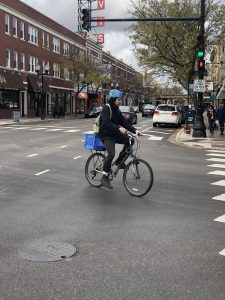The city of Chicago has been touted as one of the most bike-friendly cities in the United States. Actual cyclists do not always share the same view. There is still tension and resentment between motorists and cyclists which does not directly result in a crash but is definitely a contributing factor in how biking as a socio-economic activity is being perceived in the city and the nation as a whole. On stretches of busy streets such as Milwaukee Avenue, you will find cyclists and motorists warily sharing the road with each other as best they can.
Chicago Tribune reported during this summer, that cyclists’ deaths have increased by 34.8 percent—a disconcerting number considering the efforts the city and Vision Zero have put in to make biking safer for many who choose to do so. Many bikeway paths downtown are sacrificed in the name of congestion and heavy construction, making them smaller than ever and more dangerous for bikers to traverse. August of this year, a 39 year old woman on her bike was pronounced dead after being struck by a truck in the West Loop on Halsted and Madison. In light of this recent tragedy, personal injury attorney, Peter Zneimer, notes that the city of Chicago still has a long way to go in protecting its vulnerable roadway user.
The personal injury lawyers of Zneimer & Zneimer, P.C. have represented numerous cyclists who have experienced the perils of biking first hand and have incurred harrowing injuries as a result. Nevertheless, avid cyclists and many cycling organizations in the country are relentless in their pursuit of safer bikeway conditions. For one, a Harvard study is delving into a smarter and more sophisticated design to safely separate cyclists, pedestrians and vehicles from each other. Cities around the world have started building barrier-protected bicycle-exclusive cycle tracks between the sidewalk and the street and if successfully implemented, this will increase levels of biking while improving safety.
 Chicago Accident Lawyer Blog
Chicago Accident Lawyer Blog


